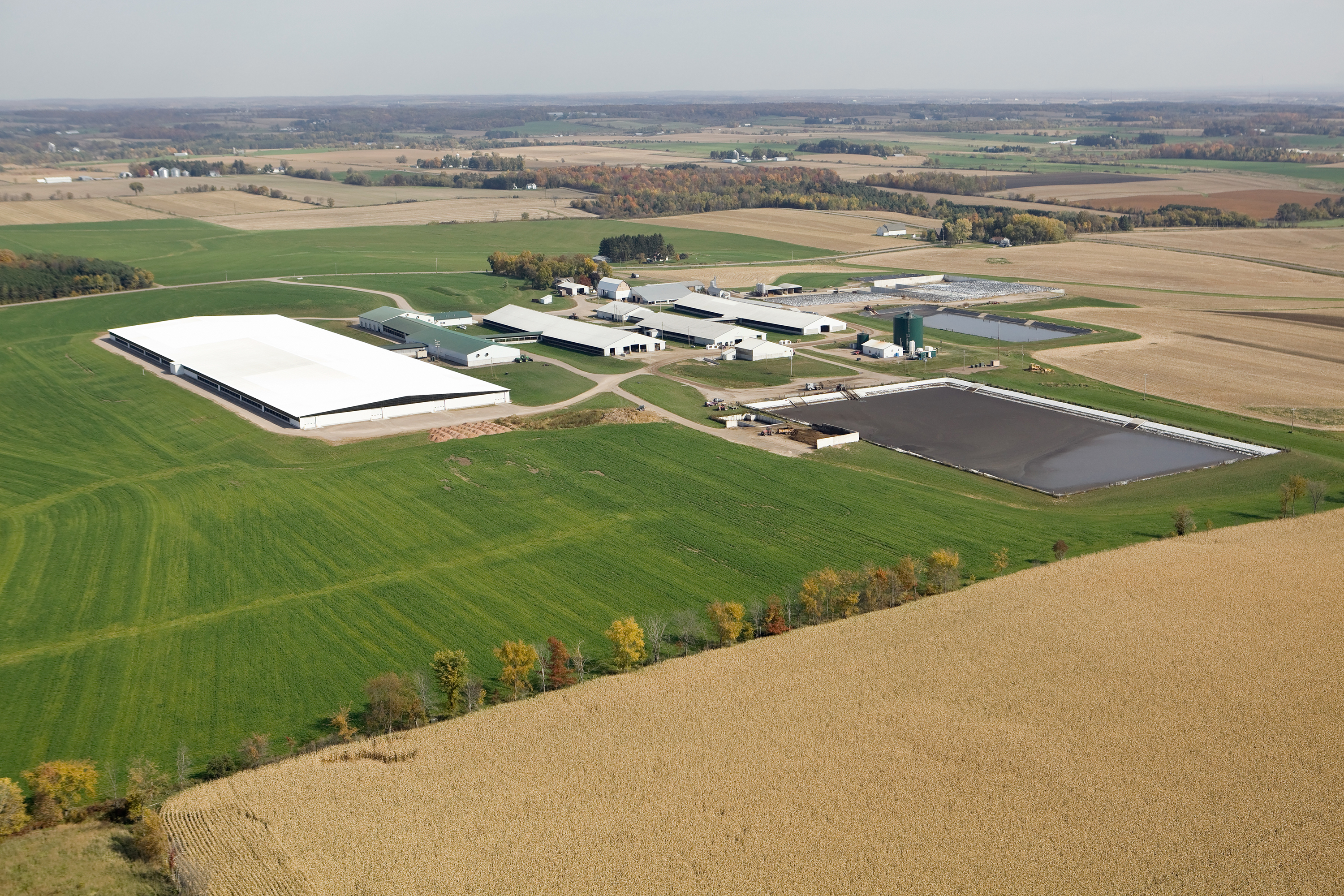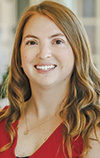To read this article in French, click here.
Succession planning is about owning your future and controlling your farm’s destiny. While nobody likes to think about what will happen when they’re gone, it is a necessity for dairy farm families that manage multi-generational family businesses.
In a recent panel discussion at the “Own Your Future Forum” hosted by the Professional Dairy Managers of Pennsylvania (PDMP) and Center for Dairy Excellence, five panelists from all sectors of the industry had a candid conversation about taking control of the future.
The panel included Jennifer Voss from The Voss Group, a business and family management consultant with nearly 20 years of business management experience; Mike Hosterman of Horizon Farm Credit, a seasoned ag business consultant who works with farms across Pennsylvania; Mike Peachey of Acuity Advisors and CPAs, who has decades of experience helping agribusinesses as an unbiased third party; Tony Brubaker of Brubaker Farms in Lancaster County, Pennsylvania, who has been a receiver of the farm from his parents – along with his brother – and is now looking to structure a partnership for the fourth generation returning to the farm; and Lucas Waybright, a former next-generation farmer who – after attempting to find a partnership path within his family’s dairy business – now leads the Dairy Grazing Project at Pasa Sustainable Agriculture and is certified to help other farm families with succession planning.
Together, the panelists tackled some of the most challenging and frequently asked questions about starting difficult conversations and building succession plans that benefit everyone.
How do you start that initial conversation between generations?
When it comes to conversations about sensitive topics, Voss reminded dairy farm families that it is a two-way street between generations.
“If you’re the current generation, you have to open yourself up to talking to the next generation about their future. Give them line of sight to what might be out there, and address their concerns,” Voss said. “You’ve made a livelihood and accumulated assets. The next generation wants the same opportunity, and they need to figure out how to do it within the structure you’ve built.”
For the next generation, Voss also reinforced the importance of taking ownership of their growth and professional development.
“You can’t sit there and wait for someone to hand you these things. Articulate your goals and interest [to the older generation] about where you want to go,” Voss added. “What skills are missing? What are the things you don’t know? Own your own growth and development for the future.”
To have respectful communication between each generation, Voss shared these questions as conversation starters:
Generation One: What do you hope happens to the farm when you’re no longer running it? Is farm continuity important to you? What will your retirement lifestyle be?
Generation Two: What skills do you need to learn to be successful? What is your desired role and responsibility? Do you need to own the farm, or would you be excited to be influential in changing the direction of the farm and creating wealth for your family?
When navigating these conversations about the future and what different partnerships might look like, Voss shared the qualities that each generation should value and appreciate in one another. Generation One has accumulated land, cattle and equipment. Possibly even more important than those assets, they also have deep-rooted relationships and years of experience. They have systems and processes and bring tremendous value.
For Generation Two, they want to take the business to the next level, so they bring drive, hard work, commitment and passion. They are a fresh set of eyes and a new, extremely valuable perspective.
Why should I make a plan if don’t have a successor?
Many dairy farmers wonder why they should prioritize succession planning if they don’t have an heir or successor. Peachey led the conversation by challenging that way of thinking.
“How do you know you don’t have a successor? Maybe there’s not a next generation, but your business will continue to someone. Maybe that’s a neighbor, or maybe that’s a buyer,” Peachey explained. “One of the things you could be doing is preparing your business to make it more attractive to sell if there isn’t an inside sale that will occur.”
Peachey suggested a few starting points for preparing your business for a future sale:
- Establish a solid team. A buyer might pay more for that business if there is a capable team in place.
- Maintain good financial and herd records. Be organized with your information.
- Find ways to improve cash flow. Making improvements to your cash flow can demonstrate that you have a viable business model.
- Consider building an estate plan to avoid undue financial pressure in the future.
“What if something happens to you tomorrow? Where do you want your wealth to go? To your kids or a charity? You still need that plan even if you don’t have heirs. It’s never too late to start, but starting early makes it easier,” Hosterman added during the discussion.
Once a succession plan is developed, it must be tailored and adapted over time to match changing laws, evolving interests or new partners.
“Similar to how farmers have a crop plan and make adjustments on the fly based on weather, it’s the same way with succession planning,” Waybright shared. “It’s important to communicate that it is a living document that’s flexible. Things do change. Communicating and openness cannot be overstated.”
Why focus on estate planning if I’m going to be dead?
According to Voss and the other advisors on the panel, estate planning is about ensuring harmony and taking responsibility for your assets and estate.
“Estate planning is for the living – whoever is going to be left behind to deal with your estate. We’re talking about trying to leave behind a responsible legacy,” Voss explained.
Estate planning can help prevent future disagreements between family members and keep harmony intact. Voss says it’s about more than avoiding taxes. It involves protecting against other risks and undue financial pressure such as long-term care, divorce or other liabilities. The panel broke down estate planning into the following components:
- Gift – Assets pass first by gifts during your lifetime.
- Contract – Assets next pass by contracts, including life insurance, annuities, IRA or pensions or buy/sell agreements.
- Ownership – Assets next pass by ownership, including real estate or bank accounts owned as joint tenancy.
- Will – If assets have not been distributed in any other way, the will then be consulted.
A trusted advisory team can help you develop goals in these areas and create an integrated plan, between your business and finances, to ensure your estate plan is fair to everyone involved.
“Having a team of people is important, but you need to trust them. You need to have a relationship with them and feel good about what they do. They need to respect you and dig into your goals,” Hosterman added.
What does an advisory team actually do?
A facilitator is one of the key members of an advisory team and can help manage the “emotional balance sheet.” This often involves talking to every family member independently to hear their unfiltered expectations, emotions and goals, so they can then try to bridge those gaps.
“Everyone has expectations. How much alignment or discord is there between everyone’s goals? Are those expectations well communicated? If not, we will get disappointed. The challenge is, how do you fill the gaps with good communication, dialogue, and discussion to work toward reconciliation and solutions, rather than disappointment?”, Peachey shared during the discussion.
Brubaker, Peachey and Waybright reflected on their personal experiences as dairy producers with different areas of advisory teams.
Find a team with similar values.
Brubaker said, "We were very haphazard [with our planning] up until 2013. In 2013, we realized my parents were in their 70s and we needed to finalize some things. Once we worked through our initial plan, we needed to identify an attorney we could grow with. Someone who had similar values to us and could understand where we were coming from."
Understand the importance of financial and retirement planning.
"In 2020, when my nephew bought into the partnership, we realized we should start thinking about retirement. Can the business afford to retire two partners [me and my brother]? We brought in financial planners during that process and added a third leg to the stool," Brubaker said.
Peachey added, "We worked with the Brubakers to help find ways to help build cash flow to be able to fund the expected increase in cost of production to prepare for their expected retirement payments."
Invite the next generation into advisory meetings and financial discussions.
Waybright said, "I was at the table for those financial discussions. There really wasn’t any sort of veil. I didn’t have a vote or a say, which was fair. It was more about learning how the family and business made decisions, both right and wrong. I don’t think there’s any help in holding information back once there’s a level of commitment and dedication to the business. From my experience, I thought it was good and I’m glad I had full access."
"We had a heavy reinvestment strategy in our business for many years. It was just three to four years ago that we started realizing we needed to create some financial autonomy for my brother and I from the business. The business doesn’t have to fund us if we decide we can’t or don’t want to work. In the process, we started my nephew on a similar plan. Why not start each generation with a plan so [future business] decisions don’t have to be dependent on paying for retirement?" Brubaker added.
Working as a team to have candid conversations can help each generation have a clear picture – and take ownership – of what their future could look like.
“If we want to encourage the next generation to come back to the business, we have to show those numbers early. They’re looking for equity growth and they want to see their future. The earlier we can share that, the earlier they can see what the business can do,” Hosterman said.









